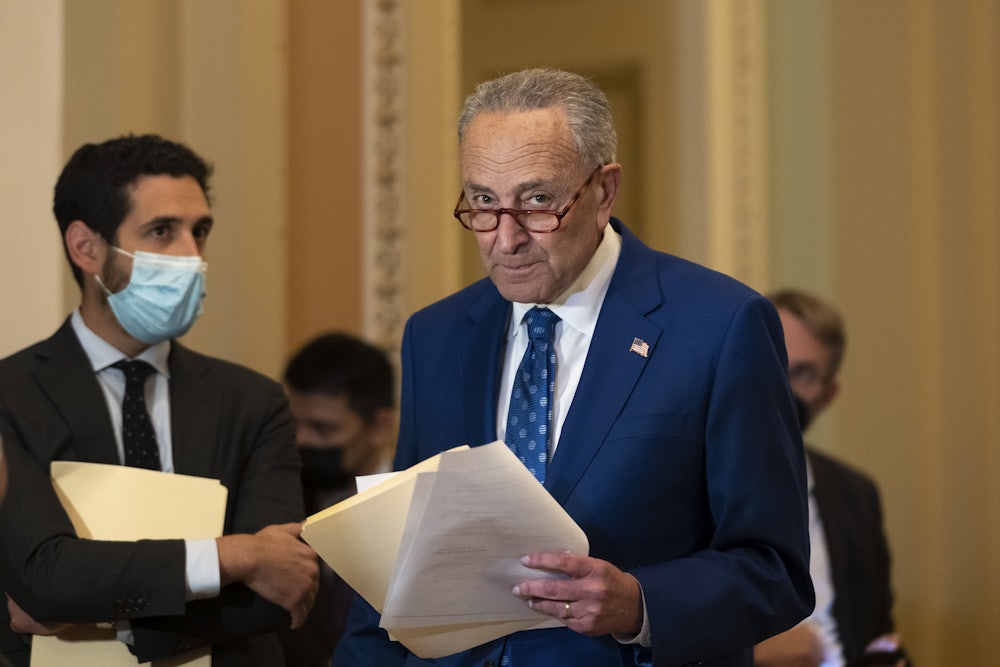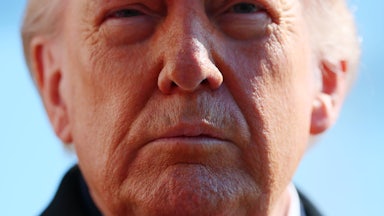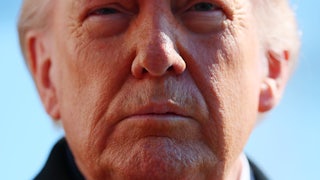December is a jam-packed month for the Senate, with the legislative Advent calendar including such treats as must-pass government funding and defense authorization bills and President Joe Biden’s social spending, tax, and climate bill. But in the midst of considering these priorities, Senate Democrats are also mulling how they can pass critical voting rights legislation without destroying the filibuster.
This search for some middle ground between “doing nothing at all” and “going nuclear on a long-standing procedural rule” has been euphemistically referred to as “restoring the Senate” by Senate Majority Leader Chuck Schumer, harkening back to a bygone era of functionality in the upper chamber. In his November letter to Democratic colleagues outlining the hefty end-of-year to-do list for the Senate, Schumer said that the fight to pass voting rights legislation remained one of his top priorities. Republicans have blocked several bills related to voting and elections brought by Democrats this year, a feat made possible by their persistent use of the filibuster.
“Even if it means going at it alone, we will continue to fight for voting rights and work to find an alternative path forward to defend the most fundamental liberty we have as citizens. To that end, a number of our colleagues—with my full support—have been discussing ideas for how to restore the Senate to protect our democracy,” Schumer said.
This is not the first time Schumer has used the phrase “restore the Senate.” “Democrats will explore alternative paths to restore the Senate so it does what its framers intended: debate, deliberate, compromise, and vote,” Schumer said in a November 4 floor speech, after Republicans blocked the John Lewis Voting Rights Advancement Act, which would have restored a portion of the Voting Rights Act gutted by the Supreme Court.
And two weeks earlier, Schumer referenced those words after Republicans blocked the Freedom to Vote Act, a slimmed-down voting and elections reform bill crafted by a group of Democrats in an effort to garner Republican support. “We need to work to restore the Senate as the world’s greatest deliberative body, so we can better serve the needs of our nation,” Schumer said on October 21.
The filibuster is the elephant in the Senate chamber that’s gone unmentioned in all this talk of restoration. Most legislation requires 60 votes to advance in the Senate, and Democrats only hold 50 seats. If Democrats can’t get 10 Republican votes to limit debate on a bill, that’s a filibuster—the modern-day, optimized-for-maximum-obstruction-and-minimum-fuss version that’s become the norm, anyway. In the halcyon days of yore, senators would actually have to be present and speaking on the Senate floor if they wanted to block a bill. But a rules change in 1975 both lowered the threshold by which the Senate could advance a bill to 60 votes, with the purpose of making it easier to pass legislation, and no longer required senators to be physically present to prevent an end to debate.
In theory, legislation should be able to be approved with an up-or-down simple majority vote. But that requires clearing the hurdle of limiting debate, and reaching the 60-vote threshold. Usage of the filibuster has increased dramatically in recent years, as the minority party can block any legislation it opposes. (This touches upon one of the most convincing arguments for Democrats against eliminating the filibuster—someday they will be in the minority again and will want their rights to be protected.)
Republicans earlier this year blocked the For the People Act, a sweeping voting, campaign finance, and election reform bill. A group of Democrats, including several moderates, then crafted the Freedom to Vote Act in the hopes of enacting reforms that could get Republican votes; this too was filibustered, as was the John Lewis Voting Rights Advancement Act.
But eliminating the filibuster altogether is likely not an option, as Senators Joe Manchin and Kyrsten Sinema are firmly opposed to doing so. Manchin led the effort to pitch the Freedom to Vote Act to his Republican colleagues, in the hopes that a less expansive measure would attract GOP votes. Despite having been rebuffed, Manchin remains adamant in his opposition to ending the filibuster or creating a carve-out specifically for voting rights.
The Senate is not an antique desk, and “restoration” will entail more than just a little varnish. Senator Angus King on Tuesday outlined some options for filibuster reform for The New Republic, such as requiring senators to be present and talking on the Senate floor if they want to block a bill, or requiring the minority to muster 41 votes to block a bill instead of putting the onus on the majority to garner 60 votes to advance it.
“Right now, the filibuster is too easy. We ought to have a new word for it. It shouldn’t be the ‘filibuster,’ because it’s not what it was 50 years ago. It’s a de facto supermajority requirement, which the Framers expressly rejected,” King said. (Of course, in this prior era, the filibuster was often employed by segregationists who would hold the floor for hours in attempts to block civil rights legislation, so discussions of “restoring the Senate” refer more to how the filibuster was used than what it was used for.)
Eli Zupnick, the spokesperson for the Fix Our Senate coalition, told The New Republic that while eliminating the filibuster altogether was their first choice, reform is an important first step. “The bottom line is that there are bills that need to pass. Most critically, right now, is the voting rights and anti–partisan gerrymandering legislation, the Freedom to Vote Act. And whenever it moves us in that direction, and takes steps to fix the broken Senate, is a good thing,” Zupnick said. (The Freedom to Vote Act would, among other things, ban partisan gerrymandering, but states are already beginning to unveil their new congressional district maps, and so any reform legislation may be coming too late.)
Several Democratic senators have held regular meetings with Schumer to discuss the next steps for action on voting rights, including a Wednesday confab in the majority leader’s office. Schumer pledged on Wednesday morning: “We’re going to get to voting rights this year.”
That timeline may be overly optimistic. Given everything else the Senate has to accomplish before the end of the year, a rules change may be one straw too many. “I don’t think you’re going to see this by the end of the year. There’s just too much stuff on the docket,” Senator Jon Tester told reporters after the meeting in Schumer’s office on Wednesday. But Tester, famously one of the most optimistic members of the Senate, also said that he believed progress had been made. “I think this is kind of like making a stew, it’s got to simmer for a bit.”
Senator Tim Kaine told The New Republic on Wednesday that the focus of the meetings was on figuring out how to pass the Freedom to Vote Act and the John Lewis Voting Rights Advancement Act, knowing that these bills will not get sufficient Republican support. “We have to unify around a proposal that we can all agree to, but I think we’re making good progress on that,” Kaine said. When asked if Manchin was party to these conversations, Kaine said that all 50 Democrats were involved in the discussions on the next steps for voting rights legislation.
“We all have thoughts about what are rules reforms that we think will be good for the operation of the Senate. And you have to kind of one-on-one talk to people about that,” Kaine said. “You have to look at reforms you think would work, whether we’re in the majority or the minority; they have to be fair to all sides.”
Although Democrats have not yet agreed to a rules change that would be acceptable to all, Zupnick expressed confidence that something could be accomplished before the end of the year.
“What we’re hearing from allies in the Senate is very encouraging: that there’s a lot of energy behind the idea that something needs to happen on voting rights,” Zupnick said. “That it would be catastrophic for Democrats to close out the year without doing something to protect the right to vote in 2022, to prevent partisan gerrymandering that would break the House for a decade.”










